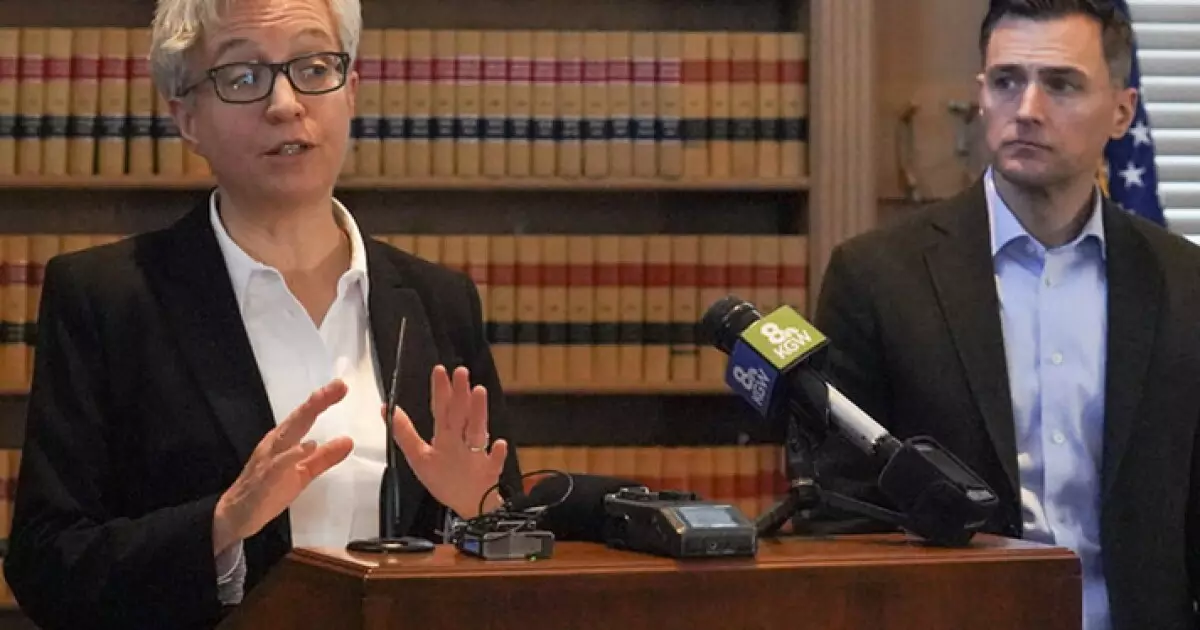10 Critical Consequences of Oregon’s Transportation Crisis: A Wake-Up Call or a Catastrophe?

Oregon’s recent transportation budget crisis is a glaring indictment of political failure. While the layoff of nearly a thousand transportation workers might seem like a mere fiscal austerity measure at first glance, it encapsulates a deeper abdication of leadership and responsibility. The state’s decision—or lack thereof—to fund critical infrastructure projects reflects an unwillingness to prioritize practical governance over political posturing. As a center-right liberal observer, I view this not merely as an economic setback but as a moral failure that neglects everyday Oregonians’ safety and prosperity.
Rather than forging a compromise on the impasse surrounding House Bill 2025, lawmakers have chosen the path of inaction. This neglect results in tangible harm—criticized as “emergency” by officials—that could and should have been prevented. True leadership requires courage and foresight, qualities evidently absent in the current state legislature. The shutdown of crucial maintenance and safety operations is not just an inconvenience; it’s a breach of the social contract to protect citizens and uphold state functions.
The Cost of Political Stall Tactics
The election-year politics at play have prioritized ideological rigidity over pragmatic solutions. The bill, a $14.6 billion initiative, was held hostage by partisan deadlock, crippling essential infrastructure funding. While Democrats sought tax increases, the refusal to compromise—despite the clear need—underscores a troubling tendency: sacrificing vital public services on the altar of political principle. This gridlock has now forced ODOT into the harsh reality of budget cuts, a scenario where the most fragile infrastructure, often overlooked until disaster strikes, bears the brunt.
This paralysis comes with a steep price. When infrastructure crumbles or becomes unsafe due to neglect, the costs rise exponentially—forever costing taxpayers more in repairs and emergency responses. Such a stance reveals a shortsighted approach where political win-plays outweigh long-term stewardship. It is irresponsible to risk Oregon’s future prosperity for short-term political gains.
Impact on Daily Life and Public Safety
The immediate fallout from these layoffs will be felt profoundly in Oregon’s communities—in rural mountain areas, urban neighborhoods, and beyond. Road maintenance, which was once taken for granted, is now threatened. Pothole repairs, pavement upkeep, and snow clearance are already being scaled back. These aren’t minor inconveniences—they’re bearers of public safety, economic stability, and quality of life.
In neglecting critical functions like wildfire prevention and vegetation management, officials jeopardize wildfire resilience, risking lives and property. As fire seasons lengthen and intensify due to climate change, Oregon’s failure to invest adequately in preventive measures is a reckless gamble. Similarly, reduced snow and ice removal during winter storms threaten the safety of commuters and emergency responders, especially in mountainous and rural territories where single-lane roads can become death traps during winter.
The Economic Toll and Long-Term Risks
What most fails the public’s right to efficient infrastructure is the ripple effect of these cuts on the economy. Delays and cancellations in transportation projects will hamper commerce, increase freight costs, and diminish Oregon’s attractiveness as a business hub. For local economies, especially those dependent on tourism or resource-based industries, this spells disaster.
Furthermore, the decision to slash vacant positions—often targeted as a savings measure—undermines institutional knowledge. Burning through senior staff and sacrificing experienced workers weakens the agency’s capacity to respond to emergencies in the future. The long-term consequence of this short-sighted move is a brittle, underfunded transportation network that risks systemic failure when it’s needed most.
A Call for Political Accountability and Pragmatism
This crisis underscores a vital lesson for policymakers: governance is about stewardship, not political theater. Oregon’s future depends on the courage of leaders willing to make difficult compromises, to prioritize community safety over partisan politics, and to recognize that infrastructure investment is a moral imperative.
While some may argue for austerity or tax relief, the costs of neglect are far greater. The impending wave of winter storms threatens to expose the true cost of years of deferred maintenance. If lawmakers truly care about the wellbeing of Oregonians, they must abandon political paralysis and focus on restoring accountability and practical solutions.
The debate over funding must shift from ideological rigidity to pragmatic consensus. Only then can Oregon steer clear of disaster—whether in the form of collapsing roads, wildfires, or economic decline. The question is not just about transportation anymore; it’s about whether Oregon will rise to meet its responsibilities or fall apart under the weight of its own political indecision.





